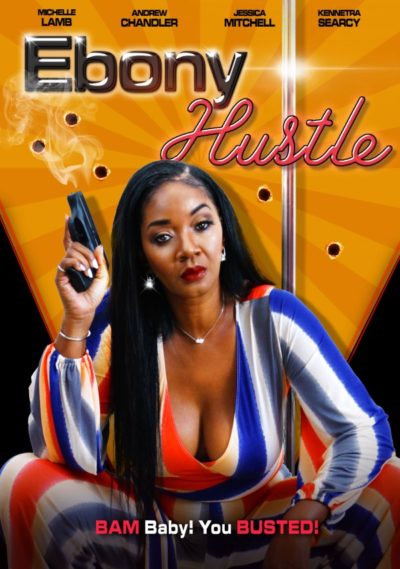★½
“Credit where credit is due…”
 When the best part of a movie is the opening credits, we have a problem. That’s the case here, with an 007-influenced montage that feels as if it cost more than the entire rest of the film to put together. However, by that point, the movie was already on thin ice, because the volume of the music was roughly three times that of dialogue in the pre-credit scene. Lunging repeatedly for the button on the remote is always a red flag for any indie movie, and proved accurate here. The same goes for the gratuitous name-checking of much better black heroines, such as Christie Love and Cleopatra Jones. They just draw attention to the deficiencies here – not that they are hard to see.
When the best part of a movie is the opening credits, we have a problem. That’s the case here, with an 007-influenced montage that feels as if it cost more than the entire rest of the film to put together. However, by that point, the movie was already on thin ice, because the volume of the music was roughly three times that of dialogue in the pre-credit scene. Lunging repeatedly for the button on the remote is always a red flag for any indie movie, and proved accurate here. The same goes for the gratuitous name-checking of much better black heroines, such as Christie Love and Cleopatra Jones. They just draw attention to the deficiencies here – not that they are hard to see.
The unusually named heroine (Lamb) is a former stripper turned insurance fraud investigator, and unwillingly accepts a case to look into the disappearance of 16-year-old girl, Ny’Kia (Elizabeth). She had become part of the retinue of former gangster turned pastor, Caleb Truth (Chandler, who looks like you ordered Snoop Dogg on wish.com). He is supposedly a reformed character, and speaks all his lines in rhyme. This is an affectation which grows steadily more annoying, every time he speaks. It seems it may even have irritated the makers, because that thread – which I’d have thought would have been the main plot – is ended, alongside Truth’s doggerel rapping, with relatively little trouble by Ebony, when there’s still half an hour to go.
The remaining time is largely filled by Ebony’s romantic entanglements. She’s a highly predatory cougar, which seems something of a double standard, considering the way she goes after Caleb Truth, for activities that aren’t really that different. There are also far too many unconvincing FaceTime conversations, though at least these are largely free of the audio issues which infect many of the face-to-face scenes. There is one which does work, between Ebony and former husband, police detective Wayne (Stevenson), both expressing regret over their shared past. Both actors are convincing, and it offers a rare moment of emotion which feels genuine here. It helps it’s understated and quiet, standing in sharp contrast to the shrill yelling and show-boating which permeates just about every other moment.
I can see where the makers were trying to go. It’s just that they managed to ignore all the elements which made black heroines of the seventies so memorable. Here’s a clue, it wasn’t flirty chat-chat with younger men over the telephone. Not to say the likes of Foxy Brown weren’t sexual creatures: it just never felt it was their main raison d’etre. Here, it feels like… well, Ebony may have left the strip-club, but the strip-club never left Ebony. Her crime-fighting trails in, a long way behind and seeming little more then an afterthought. Any time this feels like it might be achieving its ends, something happens – such as Ebony’s boss appearing, an early contender for worst actor of the year – and it all comes crashing back to earth.
Dir: Jamezz Hampton
Star: Michelle l Lamb, Andrew Chandler, Ryan Elizabeth, Joel Stevenson




